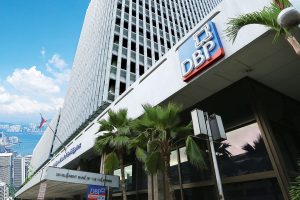THE HOUSE of Representatives on Monday approved on second reading a measure seeking to raise the Development Bank of the Philippines’ (DBP) authorized capital stock to P300 billion from P35 billion.
Through voice voting, congressmen agreed to House Bill (HB) No. 11230, which would repeal DBP’s almost 27-year-old charter, a move that would allow the lender to better finance infrastructure projects and small businesses.
This is a shift away from the state-run bank’s current charter, which is currently focused on providing services to agricultural and industrial enterprises.
“[The] amendments will provide and expand the powers and functions of DBP with the corresponding needed increase in its capitalization [and] enhance the bank’s ability to ensure continuity of developmental service to the nation,” Manila Rep. Erwin C. Tieng, who heads the House banks committee, told lawmakers during his sponsorship speech.
The Finance department is supporting the congressional approval of proposals granting the DBP a new charter, it said in an earlier statement. It would provide the state-run bank with more efficient access to capital and reduce its dependency on the National Government through dividend relief.
The Senate approved its counterpart version of the measure in Sept. 2024.
Under the bill, the DBP would be allowed to issue stocks through an initial public offering, allowing the public to own up to 30% of the lender’s capital stock, pending the “manner and quantities” approved by the Finance secretary.
“The capital stock of the bank shall be P300 billion, divided into 3 billion shares, with a par value of P100 per share,” the bill stated.
The National Government is mandated to own 70% of the bank’s stocks at all times, while 10.67%, or P32 billion of the stock, should be subscribed to and paid from state coffers.
The DBP is authorized to allocate a “part or all” of its unrestricted retained earnings towards increasing the National Government’s paid-up capital stock.
The state-run bank would be allowed to give loans for the development of physical and digital infrastructure, while also lending for tourism and energy development purposes.
It also would enable the DBP to extend financial support to micro, small, and medium enterprises, government-owned or -controlled corporations, and local government units, the bill stated.
Mr. Tieng said the bill also allows the government bank to engage in “traditional and non-traditional modes of financing,” which would allow it to fund the acquisition and construction of government properties, such as Philippine embassies abroad.
Amending the DBP’s charter would allow the bank to be more responsive to the “evolving needs” of the Philippine economy, according to John Paolo R. Rivera, a senior research fellow at the Philippine Institute for Development Studies.
“The current DBP charter may no longer align with the evolving needs of the economy, especially as the country focuses on inclusive growth, infrastructure development, and digital transformation,” he said in a Viber message before the bill’s approval.
The proposed chapter could help align the bank’s priorities with the government’s long-term socioeconomic development plans, such as the Marcos administration’s Philippine Development Plan 2023-2028, he added. — Kenneth Christiane L. Basilio

